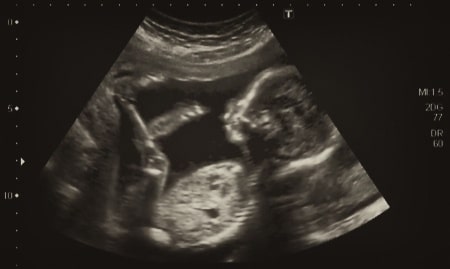All babies are precious, especially to their parents. However, a recent study shows that the way a baby is conceived makes some more ‘precious’ than others – at least as far as physician recommendations go.
Published in the Oxford Journal, Human Reproduction, the recent study looked at how physicians would handle a hypothetical pregnant patient, and whether or not the method of conception made an impact on their decisions.
Assisted reproductive technology (ART) has become increasingly popular, especially for older couples that have failed to conceive on their own. It has become so common, in fact, that a 2011 report from the Centers for Disease Control and Prevention found that the use of this technology has doubled over the last decade, with about 1% of all babies now being born through ART.
Of course, like all technologies, ART is far from a miracle treatment. Even when pregnancy is achieved, loss of pregnancy can happen. In fact, the live birth rates for women under the age of 35 is only about 30-35% percent. As a woman ages, her chances of success drop – from 35% between the ages of 35 and 37 to 15-20% between the ages of 38 and 40, all the way down to just 6-10% past the age of 40.
While some technology enhancements look promising – endometrial scratching, for example – these success rates are pretty common, no matter where a woman lives. But do these lowered success rates, paired with the fact that assisted technologies often cost thousands of dollars, be enough to warrant different treatment from a physician?
“Some pregnancies are deemed by parents to be more valuable than others, particularly if conception has taken several courses of assisted reproductive treatment to achieve,” Dr. Yaniv Hanoch, associate professor of psychology at Plymouth University in the UK told Medical News Today. “But you might expect clinical recommendations regarding pregnancies to remain consistent, particularly when it comes to tests for serious medical conditions. However, this study demonstrates there may be a tendency for clinicians to be affected by the nature of the pregnancy before determining the parents’ wishes.”
Researchers from Israel and the UK presented 163 different obstetricians and gynecologists with a questionnaire. The hypothetical case involved 37-year-old pregnant women and whether or not to test for Down syndrome – a condition that affects 400,000 people in the United States. According to the National Down Syndrome Society, women 35 or older are at a higher risk for delivering a baby with this condition. Testing is recommended, but not mandatory, for older expectant mothers.
Currently, there is only one method for testing for Down syndrome – an amniocentesis, a procedure in which some of the amniotic fluid is drawn out of the womb with a needle. Unfortunately, there is a small risk of miscarriage with this test. In fact, Mayo Clinic estimates that somewhere between 1 in 300 and 1 in 500 of all amniocentesis done will result in miscarriage if the test is carried out during the second trimester.
That slight risk seemed to be taken into more consideration when a physician was told that the hypothetical mother had conceived via ART; though most agreed that the risks of the procedure are negligible, only 19.2% of all clinicians recommended it be done in a woman who had conceived via ART. In contrast, of those that were told the pregnancy was spontaneous, 43.5% recommended the very same test with the very same potential risks.
“When considering a procedure that may endanger a pregnancy, the value ascribed to loss of that pregnancy may seem greater if the pregnancy was achieved by tremendous effort, thereby swaying the decision toward avoiding the procedure so as not to incur even the smallest risk of endangering the pregnancy,” the researchers said in their study, which concluded that even physicians are not immune to the ‘precious baby’ syndrome.
Related Articles:
- Songs Played during Pregnancy Remembered by Babies after Birth
- Two Sisters Deliver Twin Quadruplets Same Day
- Preterm Births 15-Year Low in U.S., but Still Highest of All Industrialized Countries







